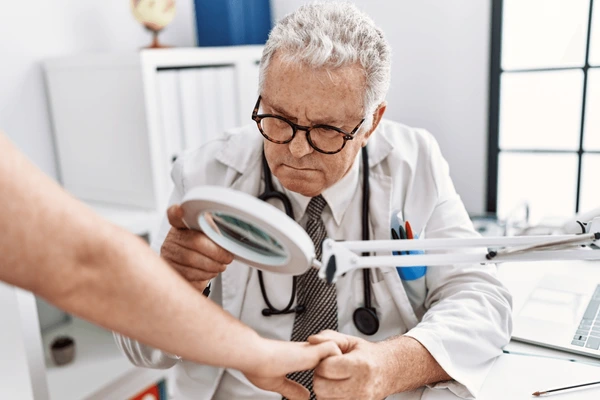
What Is Actinic Keratosis?
Key facts about actinic keratosis:
- Forearms, and hands.
- Often feels like sandpaper and may be pink, red, or skin-colored.
- More common in adults with fair skin and a history of UV exposure.
- Considered precancerous—early treatment reduces the risk of progression.

How We Diagnose Precancerous Lesions
If a lesion looks unusual, thicker than normal, or does not respond to standard treatment, we may perform a biopsy to confirm the diagnosis and rule out skin cancer. This step ensures we choose the safest and most effective treatment plan for you.

Treatment Options for Actinic Keratosis
Why Choose Altitude Dermatology for AK Treatment?
Comprehensive Care
From quick cryotherapy to advanced field therapies and photodynamic therapy, we offer the full spectrum of AK treatments in-clinic.
Experienced Providers
Our board-certified dermatologist and physician assistants specialize in early detection and treatment of precancerous lesions.

Personalized Treatment Plans
Every patient’s sun damage is unique. We create customized care strategies designed for your skin type, lifestyle, and risk factors.
Convenient Locations
With clinics in **Johnstown and Longmont—and Fort Collins coming soon—**expert skin care is always close to home in Northern Colorado.






